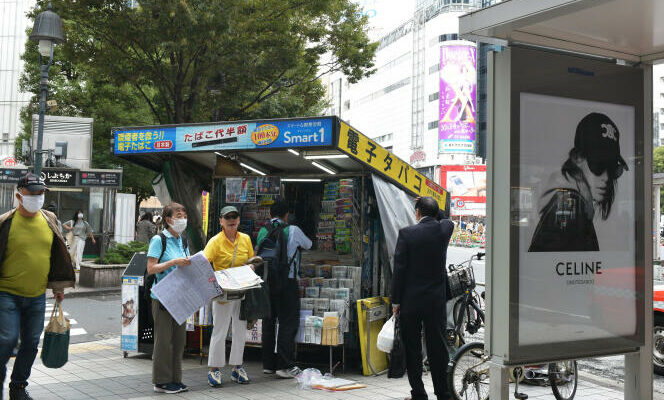LETTER FROM TOKYO
Almost every week, the scoops from the Japanese weekly tabloid press claim victims. The latest is called Karolina Shiino: this young woman of Ukrainian origin had to give up her title of Miss Japan on January 31 after the revelation by Shukan bunshun of her relationship with a married man.
Sometimes these scoops can have more dramatic consequences. In May 2023, after an article by Josei Seven (a weekly aimed at a female readership) denouncing acts of sexual harassment on his part, Ennosuke Ichikawa, a famous kabuki actor – traditional Japanese theater -, descendant of a great line of actors, involved his parents in a project of collective suicide in which he alone survived, having ingested an insufficient dose of barbiturates.
Since the sexual abuse scandal committed by Johnny Kitagawa (1931-2019), founder of the powerful boy band agency Johnny & Associates, a J-pop institution, revelations about these practices in the entertainment world have multiplied. It took a long time… From 2001, Shukan Bunshun had published an article on Kitagawa’s questionable behavior – which earned him a defamation suit – but no other media followed up. It was only following a BBC report, in March 2023, four years after the death of the sad character, that the scandal broke out.
Naughty photos
Politicians, sometimes ministers, constitute another prime target for tabloid weeklies. Pilloried for various embezzlements, they are often forced to resign. If the affair grows, the major national dailies with huge circulations – millions of copies – end up coming out of their wait-and-see attitude.
Compared to their Western counterparts, the latter seem timid. A restraint which is intended to be a guarantee of seriousness. Descriptive, factual, Japanese dailies, while they have an editorial line, are very balanced in their approach. “What their readers expect is reliable information,” estimates the sociologist César Castellvi, author of a rich survey (The Last Empire of the Press, a sociology of journalism in JapanCNRS éditions, 2021) on the Yomiuri shimbun, leading daily newspaper in the country in terms of circulation (8 million copies).
Many readers, frustrated by this reservation, turn to weeklies which practice investigative journalism. “We could almost speak of an implicit division of the production of political information between institutional media and the magazine press,” explains César Castellvi to World. “The weakening of rather liberal dailies, Asahi Or Mainichino longer allows them to play their role as counter-power, strengthening the position of the weeklies,” he continues.
You have 50.85% of this article left to read. The rest is reserved for subscribers.
